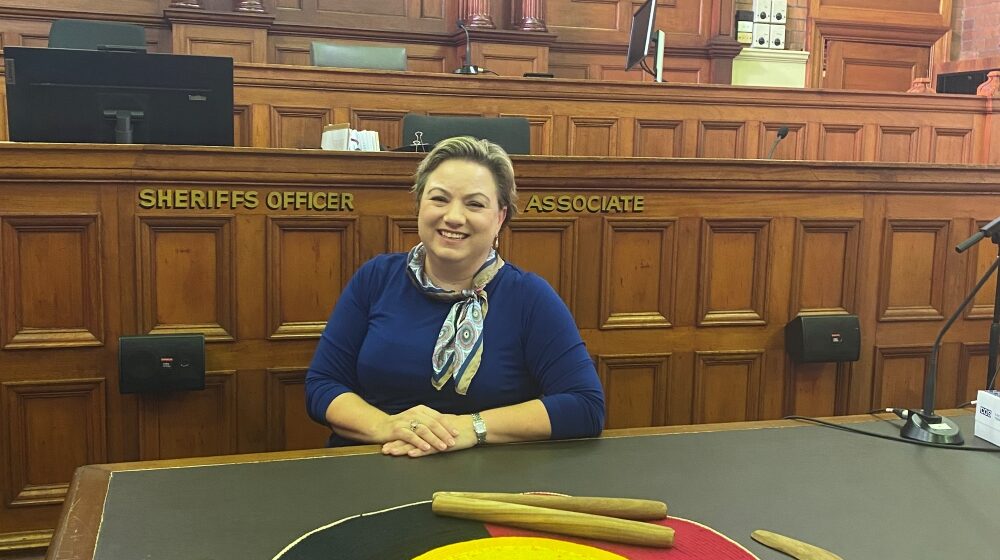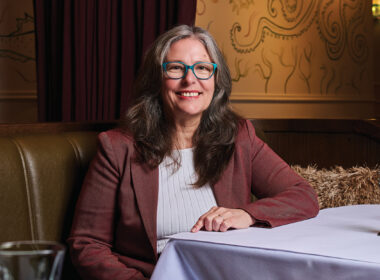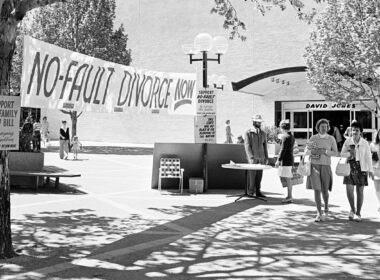On Sunday March 10, the world recognises International Day of Women Judges, as declared by the United Nations General Assembly in 2021 and first celebrated in 2022.
The intention of the still newly-celebrated day is to draw attention to the ongoing underrepresentation of women in the judiciary, and particularly in senior leadership positions. The consequence of this is a lack of representation of women citizens within the courts where justice is carried out.
According to the UN, “By investing in women’s advancement and women justice leaders, we can help ensure that justice is better served and that women and all members of our societies are met with fairness and equality before the law, for the benefit of all.”
Ultimately, the International Day of Women Judges is a reminder from the UN that “to achieve justice, we need more women in justice”.
In June 2023, the Australasian Institute of Judicial Administration (AIJA) reported that women make up 44.9 per cent of judges and magistrates across all Australian jurisdictions. In NSW, the report indicated that women represent 43.7 per cent of judges and magistrates in New South Wales, an increase of 2.3 per cent on 2022 and an 11.8 per cent increase since 2013.
In May 2021, Magistrate Rebecca Hosking was one of four new appointees to the Local Court of NSW. Then Attorney General Mark Speakman said, “The Local Court is the engine room of the NSW justice system, dealing with 96 per cent of all criminal prosecutions and more than 90 per cent of civil cases … the new appointments will bring the Local Court nearer to gender parity than ever before, with 49.6 per cent of magistrates being women.”
From working in civil cases to a new world
Hosking was sworn in on 15 June 2021 after two decades as a practising lawyer specialising in insurance litigation and dispute resolution.
“Our careers are so long. This change 20 years into my career has woken me up and given me new passion for my job and my career. I can return to my work with a light step, even after holidays, because that’s how much I enjoy what I’m doing,” she told LSJ.
As far as equality, she says, “It’s not as simple as looking at February 2021. You’ d have to go back a long way to see how far back the movement towards equality began happening … We were in a state of equality by June 2021 when I joined. It’s not something I focused on prior to becoming a magistrate, but it’s certainly something I was conscious of from the minute I walked in the door.”
Hosking adds, “On 7 July 2022, AFR reported that women would have to wait until 2031 to achieve partnership equality in law firms. By comparison, Magistrates salaries are determined by the Remuneration Tribunal so I’m experiencing transparency and true equality in terms of pay, conditions and gender representation in a very senior position in a traditionally male-dominated profession.”
Embracing Circle Sentencing
One element of Hosking’s role that has provided new territory is her participation in Circle Sentencing.
“Once I was allocated to Wagga, I was approached about whether I’d be involved in Circle Sentencing and I readily embraced it,” she says.
“I’ve been working very closely with Wagga Wagga’s Aboriginal Client and Community Support Officer to roll out circle sentencing. We aim to do two a month and all the dates available are filled up to July. The process has been fantastic on a number of levels. Bringing elders into the system gives them an understanding of problems within their community as well as the boundaries within which the courts work, and how courts can play a role in achieving rehabilitation.
“We welcome stakeholders from mental health nurses to community corrections, who can explain what programs are offered, and opportunities to an offender. When you make a community-based order, you have quite broad powers as a magistrate in terms of additional orders aimed at rehabilitation. So, you might make orders that they’ve got to attend Men’s Shed once a week or for a young mother who isn’t engaged with members of her community, you might make an order that she attend a local playgroup. The importance of engagement in pro-social activities with engaged community members can’t be underestimated.”
She concludes, “I’ve felt that Circle Sentencing has fed into my knowledge when sentencing in the traditional court system, so it’s been beneficial in the circle process and also in the courtroom.”
A fresh perspective and applying transferable skills
Hosking’s background was largely in litigation of civil insurance matters, while most magistrates come from a background in criminal law.
“The reality is that very few civil matters play out in the local court. At [the] Downing Centre, I did a lot of civil work because as a magistrate with civil experience you’re in the minority. In Wagga Wagga, I may have three civil matters on the go at any one time whereas I deal with more than 150 criminal matters in a week. It was a steep learning curve. I spent a lot of time studying criminal legislation that we consider minute-to-minute, day in, day out”.
She says, “I’ve come in with a fresh perspective to applying the law. As an insurance lawyer my role was about risk management and risk reduction: to review material, assess matters and advise clients on the most probable outcomes of the matter, and matters were largely resolved at mediation without massive legal costs. I was well placed for this role in terms of listening to both sides, looking at the matters, and making an unbiased determination.”
Regional life has been fantastic for the whole family
“Magistrates are required to do two years of country service; it’s a blanket requirement of all full-time magistrates, so when you take job you know that between six and 18 months away you’ll have to go somewhere in NSW for that period,” says Hosking.
“I’m the Magistrate and Coroner of Wagga Wagga, Narrandera, and Junee. I applied for a circuit that would have us in quite a stable position – my circuit involves very little travel as I spend most of my time in Wagga. My husband and I decided we wanted to go somewhere as a family, so I’m here with my husband and two kids. They’ve uprooted, changed schools, and my husband works from home and sometimes flies to Sydney. I’ve had a fantastic time in Wagga, personally and in my career.”
However, her two-year term has come to an end and Hosking and her family are returning to Sydney.
“The situation I’m in is that my architect husband needs to return to his office and while my children have settled in and embraced the sporting enthusiasm here, years 11 and 12 are looming, so I’ll be back to the Sydney metro from July this year,” she says.
“Still, I’ve met a fantastic crew of women in Wagga Wagga through Women in Business. Having decided that book clubs felt like homework, these friends started ‘convo’ – no homework, just frank and interesting discussions with passionate, supportive and interesting women.
“The stress in private practice is 24/7. You’re applying law, managing business finances and staff, and particularly with international clients, you’re working all hours. Balancing that and issues of family is difficult, and coming from that background to this job is joyously different. I have my life back. While you’re in Court you are on and there is no flexibility. There is also chambers work and list preparation but for the most part when I walk out at 5pm I’m mentally and physically done, and I can return home and be engaged in my home life in a way that I wasn’t as a partner at a law firm. I can turn my phone off on holidays.”
Ultimately, success as a magistrate comes down to a straightforward formula. In Hosking’s words, “you have to balance compassion with the ability to make tough decisions”.
“You have a defendant, a maximum penalty, and the subjective material, and all of this has to go into the mix when you’re making a decision on sentence. That’s what justice is,” she says.




